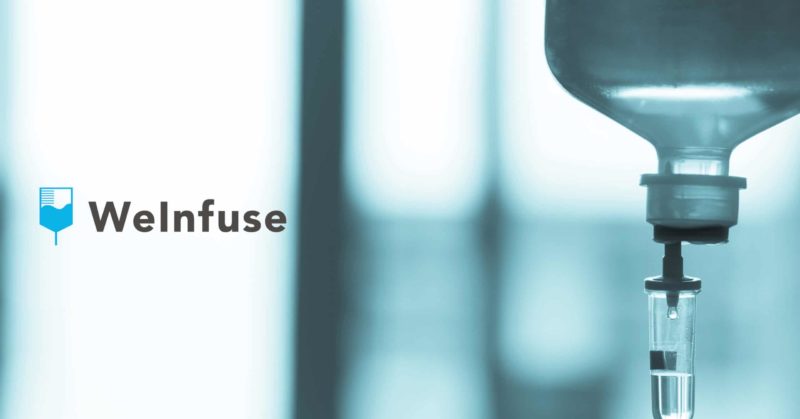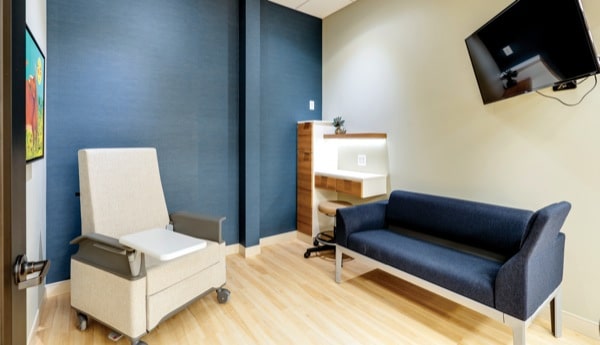Published in Specialty Pharmacy Continuum | October 11, 2019 | Written by David Wild
Las Vegas—Demand for infusion clinics outside of the pricey hospital setting is climbing, with possible approval of dozens of noncancer IV drugs over the coming years and payors struggling to contain costs for these drugs. Although the situation presents an opportunity for entrepreneurial pharmacists, starting a clinic in the wrong way can be disastrous.
“You can build the most beautiful infusion center but if there’s no marketing strategy, for example, patients may not show up,” said Bryan Johnson, a co-founder and the CEO of WeInfuse, an infusion center consultancy and software provider with offices in Austin and Dallas.
Why the Demand?
According to Mr. Johnson, who spoke about “taking the confusion out of infusion centers” at the 2019 MHA Business Summit, a July report by the National Infusion Center Association found more than 75 noncancer IV infusion medications in phase 3 trials (report available to paying members at bit.ly/2m5qip8). At the same time, payors are trying to reduce related costs, focusing in part on shifting administration of these medications away from hospitals.
“The price difference is so great that some payors have been paying patients to receive their infusions outside of hospitals,” Mr. Johnson noted.
For example, the non-profit insurer HealthTrust of New Hampshire offers its members a $500 incentive for opting to receive infusions at a “cost-effective location,” such as an infusion clinic or home infusion, according to report in HealthPayerIntelligence (bit.ly/2DTcRRo). Although pharmacies might be gung-ho to seize a good business opportunity and launch their own infusion clinic, Mr. Johnson suggested several points to consider to ensure the success of such an operation.
Provider or pharmacy? “There are pros and cons to each bucket,” Mr. Johnson said. For example, provider-based infusion clinics can typically access lower drug acquisition prices from wholesalers and pharmaceutical- or manufacturer-based programs. They also usually enjoy wider formularies, since a health care provider has to be onsite during the infusion administration. However, that on-site provider is an additional cost. “At the same time, provider-based infusion clinics do not require accreditation from URAC or other such accrediting organizations,” he noted.
Follow the market. New clinic owners need to familiarize themselves with the most commonly infused drugs and disease states. Based on the market, they can decide which medications they will administer, Mr. Johnson said. “Will you just take referrals for specialty infusion medications, or will you accept patients who need antibiotics or dehydration therapies?” he asked. “You need to know this going in because patients needing antibiotics may require them over the weekends or after hours, creating staffing issues.”
Know your competition. Outpatient infusion is a multibillion-dollar market. Al-though roughly 50% of infusions are administered in the hospital outpatient department, many are administered at an independent physician’s office, “whether that’s their neurologist’s office down the street, a two-doctor clinic with an infusion room in the back with a couple of chairs,” he said.
Hospitals have been acquiring physicians’ practices as part of an accountable care organization strategy and consolidating those infusion services, while nonhospital players have taken a similar approach, “consolidating small stand-alone clinics market and becoming infusion management companies, or managed service organizations (MSOs).
“If you were to walk into one of these offices, you would find what’s normally in any infusion center, except that everyone there works for one of these MSOs,” Mr. Johnson explained. “All the drugs are coming through the MSO and they’re providing the hub services, including prior authorizations, referrals and billing. It’s important to know the local infusion landscape and your competition, as well as where referrals will be coming from.”
Design a comfortable space. Aspiring clinic owners with limited patient interactions should consider the space they will be inviting patients into. “If you’re in a shady warehouse down a long, dark alleyway in a funky part of town, it might not be where people want to visit,” Mr. Johnson said. “You really need to start putting yourself in the patients’ shoes.”
A safe location, friendly staff, comfortable chairs, pleasant lighting and other amenities like a movie streaming service and coffee can make all the difference to the patient experience, he added.
Start small. “You can really go to town and put 15 chairs in the front area of a pharmacy or provider’s office, but starting with a few chairs and a small number of patients ensures that if kinks need to be smoothed out shortly after a launch, the experience of a few individuals will not spoil the infusion center’s reputation,” Mr. Johnson said.
Know your limits. “If you don’t like interacting with people, hire somebody who can take care of the sales and marketing piece, because marketing in this business requires a personal touch,” he said.
Unlike a typical specialty pharmacy business, retaining infusion clinic clients requires gestures such as “bringing a Chick-fil-A to Heather at Dr. Smith’s office and remembering that her kid plays softball. It’s basic sales strategy.”
A Mindset Reset
Kelly Kain, RPh, a pharmacist and the owner of Alliance Infusions, a consulting company specializing in the infusion suite market with headquarters in Phoenix, has helped launch 30 infusion centers treating a variety of disease states. He cautioned that specialty pharmacy and home infusion pharmacists “need to reset their mindset” before embarking on an infusion clinic venture.
“Attempting to hop into the infusion clinic world with a rigid pharmacy perspective won’t [be successful],” Mr. Kain told Specialty Pharmacy Continuum.
Unlike at most specialty pharmacies, infusion center staff will have direct patient encounters for months or years, Mr. Kain said, so ensuring high-quality nursing care, creating the right atmosphere and having convenient scheduling and transparent pricing and billing are some ways to ensure patients return.
—David Wild





